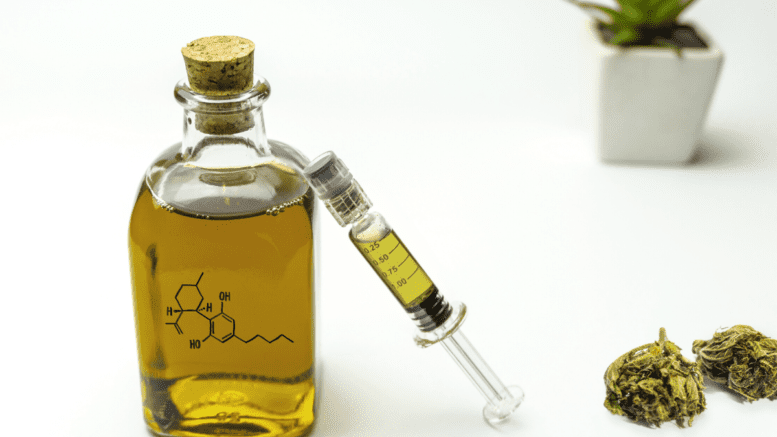Advocates of cannabidiol (CBD) say it could have medical benefits for professional athletes like hockey players, particularly as an increased number of predatory hits in the NHL this season is reigniting concerns about players experiencing traumatic brain injuries (TBIs).
Riley Cote, a former NHL player who dressed in 156 games over four seasons, is one of them. Since retiring from professional hockey in 2010, Cote has used CBD, a compound found in cannabis plants, to help his body heal from multiple years of playing a contact sport at its highest level.
His preferred methods of dosing are tincture, which is oil-based and sits under the tongue for 15 to 20 seconds, as well as capsule and topical form.
Cote says it could help treat current professionals as well.
“On the concussion side of things, if you’re administering cannabinoids daily, getting in the routine of it, you’re protecting your brain from the inside out,” Cote said in an interview with the Toronto Observer.
Watch: Former NHL player Riley Cote talks about CBD use in professional sports:
Cote recorded more than 400 penalty minutes in his four years with the Philadelphia Flyers and was known for his physical play.
Current NHL stars like Oilers’ captain Connor McDavid and Matt Duchene of the Nashville Predators are also among those who believe the NHL should take a hard look at CBD.
“I say this more talking about the CBD side of it, obviously: You’d be stupid not to at least look into it,” Edmonton Oilers captain Connor McDavid told TSN in 2018.
“When your body’s sore like it is sometimes, you don’t want to be taking pain stuff and taking Advil all the time. There’s obviously better ways to do it….
“You’re seeing a lot of smart guys look into it. You’re seeing a lot of really smart doctors look into it. If all the boxes are checked there and it’s safe and everything like that, then I think you would maybe hear them out.”
Athletes with chronic pain issues have traditionally been prescribed powerful opioids or other analgesics, but CBD could prove to be a safer and less addictive alternative.
The sale of CBD has been legal in Canada since October 2018, when the Cannabis Act was enacted. CBD does not have the same psychoactive effect as tetrahydrocannabinol (THC), the other main compound in cannabis plants. It is commonly sold as an oil or spray, either combined with THC or on its own.
‘Impressive neuroprotective results’
Martin Lee from Project CBD, a California-based non-profit that advocates for CBD use, believes a remedy that combines CBD and THC would be an ideal therapeutic candidate to treat athletes and others with TBIs.
“CBD has delivered impressive neuroprotective results in preclinical experiments,” Lee said in an email. “Pioneering medical scientists recognize that CBD can convey potent, long-lasting neuroprotection if given as much as 12 hours after the onset of a head injury.”
Read more from the Toronto Observer:
- Special report | Cannabis conundrum: edibles and all
- Juicing company blends cannabis into popular beverages
- Inside Toronto’s first legal cannabis store
The Proceedings of the National Academy of Sciences published a 1998 report on the neuroprotective properties of CBD and THC in rats. The report was co-authored by a team of U.S. government researchers, including Nobel laureate Julius Axelrod.
The researchers found that CBD and THC have a particular application as neuro-protectants, in limiting neurological damage following injuries such as stroke or TBIs.
‘It should be in the locker room’
Cote’s opinions on CBD echo the study’s findings.
“Yes, in contact sports head trauma does occur,” he said. “But if you can jump start the recovery process by having these anti-inflammatory agents already in your body, already protecting your brain, well maybe a three-to-four week concussion becomes a one to two week concussion.”
But Dr. Ian Horseman, owner of the Brain Therapy Clinic in Peterborough, Ont., said more research is needed to bear out CBD’s potential benefits for TBIs.
“While there is no research that definitively proves or disproves the use of CBD with concussion patients, I have had a number of patients tell me it helps them tremendously,” said Horseman, whose clinic specializes in functional neurology and offers treatments for head injuries.
Cote remains optimistic about CBD’s future in medicine. “I’d like to think that in the next year or two it’s not only accepted by sports organizations, but that it’s provided by sports organizations and the medical staff. It should be in the locker room.”

